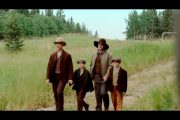Nearly 15,000 pages from files the Boy Scouts of America (BSA) kept between 1965 and 1985 on alleged child sexual abuse by Scout leaders were released October 18 by order of the Oregon Supreme Court. The pages, dubbed the “perversion files” by the media, include letters, memos, news clippings and other documents related to both alleged and confessed sexual abuse during the 20-year time period. The files were released by attorneys in Oregon who won an $18.25-million lawsuit against the BSA in 2010, and who had been working to have the records made public.
The BSA, which tried to block release of the pages, has maintained an “ineligible to volunteer” archive during much of its century-long history as part of its effort to protect boys in its program from predatory abusers, but the released files exposed how often such safeguards failed.
At a news conference Portland attorney Kelly Clark, who won the 2010 lawsuit on behalf of a plaintiff who was molested by a Scout leader in the 1980s, railed against the organization for its attempts to keep the files secret. “You do not keep secrets hidden about dangers to children,” he told reporters. Fellow attorney Paul Mones, who worked with Clark on the case, said that the files represent “the pain and the anguish of thousands of untold Scouts. While there are 1,247 files, we know that each [accused] Scout leader molested on the average more than one Scout.”
The Associated Press reported that the the files were key to the 2010 case, “and the Oregon Supreme Court ruled the files should be made public. After months of objections and redactions, the Scouts and Clark released them.”
In response to the release of the files, the BSA’s national president, Wayne Perry, issued a statement conceding that there had been “instances where people misused their positions in Scouting to abuse children.” Perry said that “in certain cases, our response to these incidents and our efforts to protect youth were plainly insufficient, inappropriate, or wrong. Where those involved in Scouting failed to protect, or worse, inflicted harm on children, we extend our deepest apologies to victims and their families.”
The AP reported that according to the Scouts’ own count, more than a third of the instances of alleged or proven child abuse by leaders were not even reported to the police, mostly because of concern that the exposure would hurt the organization’s reputation. But even when they were told, “sometimes local law enforcement still did nothing, seeking to protect the name of Scouting over their victims,” reported AP.
The files represent more than 1,200 different Scout leaders and volunteers who molested boys under their supervision. “In too many of these individual situations, what happened was a de facto cover-up,” Clark told reporters. “I don’t believe that anybody woke up and conspired and said, ‘How do we create a system that would cover up child abuse?’ But when they put the interest of the organization ahead of the safety of kids, pretty soon they were engaged in a de facto cover-up of abuse.”
One example of how Boy Scout officials apparently put the interests of the organization — and even of the alleged abusers — ahead of the victims was that of a Scoutmaster in Pennsylvania who confessed to “acts of perversion with several troop members” in 1972. The leader was placed on probation by local Scout officials even though he had submitted a letter of resignation from the organization. While it is not clear if the man continued in his leadership position, the response by a local Scout executive makes it appear that the interests of the organization trumped the concern about the crime. “If it is acceptable with you,” wrote the executive to a higher-up, “I would like to let this case drop. [He] is undergoing professional treatment in an effort to stabilize his emotional stability. He recognizes that he has had a problem and he is personally taking steps to resolve this situation. The community involved is rather unique and one father has threatened legal action which could only injure the Boy Scouts of America. Therefore, I would suggest that we let it drop. My personal opinion in this particular case is, ‘if it don’t stink, don’t stir it.’”
Clark argued that such cases were representative of the mindset that allowed abuse to continue and the abusers to be sheltered. “There is absolutely no indication that anybody, at least at the national level of Scouting, was being proactive to get this problem out in the open to get the help of law enforcement and act sort of proactively with it,” he said. “You do see regular … examples of top Scout leadership or regional Scout leadership taking steps to try to keep this quiet, to keep it under wraps.”
The BSA’s Perry agreed that Scouting officials during that era were sometimes negligent. “We definitely fell short,” he told the New York Times. “For that we just have to apologize to the victims and the parents and say that we’re profoundly sorry. We are sorry for any kid who suffered.”
In the Boy Scouts’ official statement concerning the files, however, Perry added that “while it is difficult to understand or explain individuals’ actions from many decades ago, today Scouting is a leader among youth serving organizations in preventing child abuse. The BSA requires background checks, comprehensive training programs for volunteers, staff, youth and parents and mandates reporting of even suspected abuse.” He added that the organizations has “continuously enhanced our multi-tiered policies and procedures to ensure we are in line with and, where possible, ahead of society’s knowledge of abuse and best practices for prevention.”
Perry said that the BSA’s present policies to protect its Scouting participants “have been recognized and praised by experts in child protection — including Victor Vieth, a former prosecutor who heads the National Child Protection Training Center.”
As for its “Ineligible Volunteer Files,” Perry said that child abuse experts have agreed that the system “functions well to help protect Scouts by denying entry to dangerous individuals, and Scouting believes that they play an important role in our comprehensive youth protection system.”
As noted by The New American last July, one significant way in which the Boy Scouts organization has chosen to protect boys in its programs is by continuing with its longtime policy of disallowing admitted homosexuals from serving as Scout leaders. BSA spokesman Bob Mazzuca explained that while there are some who may disagree with the policy, the “vast majority of the parents of youth we serve value their rights to address issues of same-sex orientation within their family, with spiritual advisers, and at the appropriate time and in the right setting.”
While the Boy Scouts have been attacked by “gay” activists and others for the policy, supporters point out that the proscription against homosexuals in the organization is inextricably tied to the official Boy Scout Oath, which requires that the conduct of the group’s members — as well as its leaders — remain “morally straight.”
Photo: AP Images
Related article:




